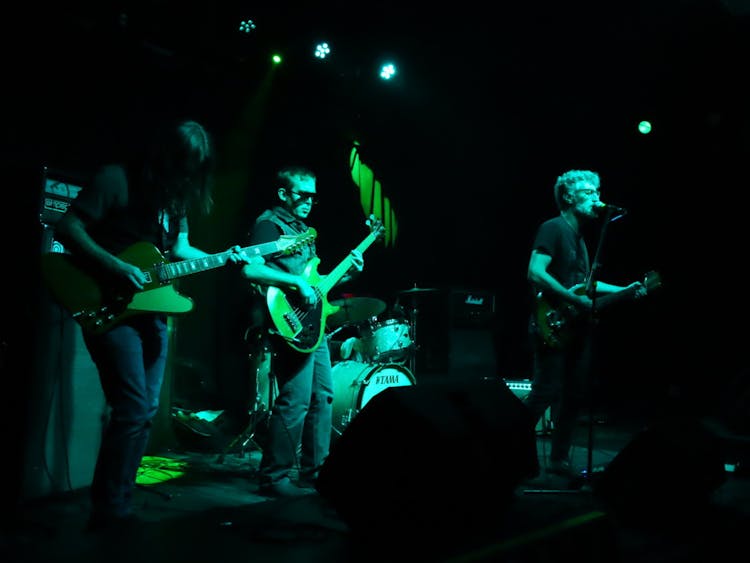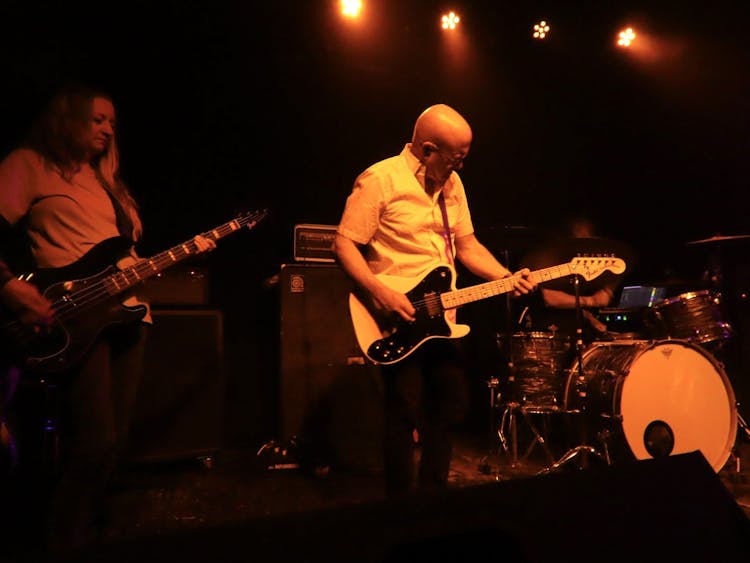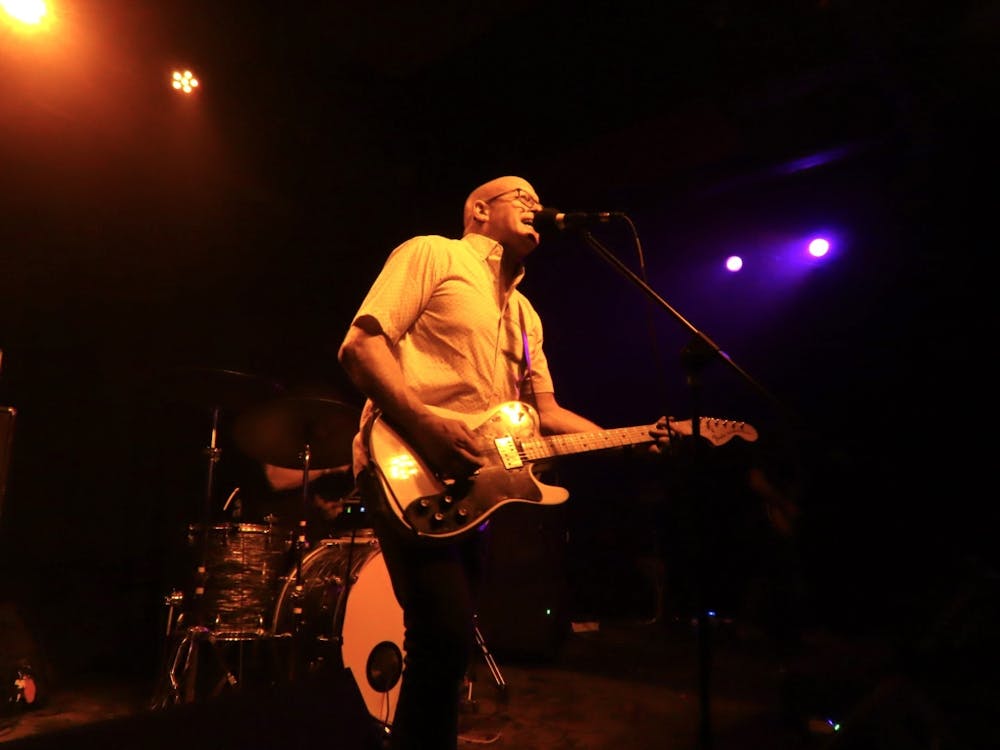Elliott is a band that defies characterization: their relatively simple emo-core songs of the late 90s gave way to a complex mix of genres and instruments in the 2000s, blending elements of post-rock and shoegaze with their earlier sound through the heavy use of pianos, strings, and ambient loops. I’ve been a fan of theirs since high school, so when they announced that they were reuniting to go on a national tour with a date at Black Circle in Indianapolis, I was immediately ready to get my tickets and get on the road. This is where the problems started…
The Linktree in their Instagram bio said that the Indianapolis ticket link was “To Be Determined” the entire time until the show happened. In fact, it’s still a dead link that doesn’t take you anywhere. A few days before the show, I was kind of freaking out until I found the link in the description of an Instagram post from the promoter, not from the band itself. My shock was doubled when I found out the tickets were a relatively steep $30 plus fees, which is nothing compared to major label acts, but three or four times the cost of most other local-ish shows. However, tickets (and ride) were secured! It was time to get to Black Circle.
When I arrived, a bummer again… the showtime in the ticket email was half an hour late, and the first set was already in full swing! I was extra disappointed because the opener was Adam Rubenstein, better known as the lead guitarist of legendary Indianapolis hardcore band Split Lip and Bloomington emo-turned-country rock band Chamberlain (who were shamelessly copied by Elliot on their first album, by the way). After his time in those bands, he became a prolific soundtrack composer and released a few solo albums where he took on vocal duties.

Because he never sang in Split Lip or Chamberlain, he stuck to his newer stuff only. I thought it was enjoyable but totally lacked the propulsive, almost frantic nature of the songs he wrote earlier in his career. The tracks I caught were mostly from his unreleased third album - they were catchy, above all-else well written, and the musicianship was ridiculously competent, with tricky basslines and drum fills woven into the fabric of the songs neatly. It’s hard to describe his genre, kind of a nondescript Muzak mix of classic rock, alt-country, and 2000s indie. My main complaint is that everything was clean and well-played in a way that felt kind of generic; more than once I couldn’t stop myself from thinking it sounded a little bit like megachurch worship rock.
With Rubenstein’s set over, the 60s Fender tube amps were carried off stage and replaced with hulking Marshall half-stacks: it was time for Nothing Club. While they’ve been gigging and releasing music in Indianapolis for years now, it was my first time seeing them live and I was pleasantly surprised. They play a unique mix of Title Fight-style heavy riffin’ with falsetto vocals more inspired by 2000s emo or perhaps Rivers Cuomo? Either way, they were both distinct enough from their influences and good enough at writing music to be really fun and interesting. Their bass player is a highlight, a tall dude with an even taller amplifier playing distorted chords and swinging his long hair to the music. They played a shorter set, but every song was quality.
Finally, it was time for the main attraction. Elliott came on stage looking a little comical – a cohort of long-haired rock gods (and goddesses, in the case of the bassist) headed by an unassuming, older-looking bald guy. However, all pretensions melt away as soon as he opens his mouth and sings. Frontman Chris Higdon’s iconic tenor is still there after all these years, but what was most surprising about their stage act to me was the drumming. Deceptively simple, I had never really noticed it on their recorded output. Live, it was some of the most intense, technical playing I’d ever seen.

The set started with a perfect run-through of their most popular track, “Calm Americans,” with the whole crowd singing along. While small, their energy was intense through the entire show. My personal favorites of the night were “Calvary Song” with its intense, mathy drumming and frequent dynamic shifts, and the anthemic “Superstitions in Travel,” with its belter of a chorus. Everybody was well-practiced and there were no discernible errors or drops in the music – it was an awesome, awesome show. Overall, while there was trouble buying tickets and getting there on time, the night was well worth the hassle. This is how they get you with reunion shows, but when will I ever get to see Elliott play again?





